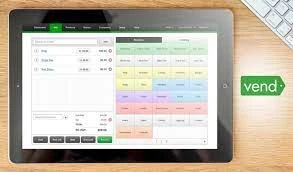Introduction
In the modern retail landscape, Point of Sale (POS) software has evolved from being a basic transaction-processing tool to a comprehensive solution that drives business operations and customer satisfaction. This article dives into the world of Retail POS software, examining its key features, benefits, and its pivotal role in enhancing the retail experience.
I. The Evolution of Retail POS Software
A. Historical Overview
Retail POS software traces its roots back to the early 20th century with the introduction of mechanical cash registers. These were replaced by electronic cash registers in the 1970s, which were more versatile and efficient. With the advent of computers and advanced software, modern Retail POS systems emerged, transforming the way retailers conduct their business.
B. Technological Advancements
Contemporary Retail POS software leverages cutting-edge technology, combining features like touch screen interfaces, barcode scanning, inventory management, and seamless integration with various payment methods. These technological integrations have revolutionized the retail experience, making it more efficient and customer-centric.
II. Key Features of Retail POS Software
A. Transaction Processing
At its core, Retail POS software facilitates seamless transaction processing. It accurately calculates prices, applies discounts, processes payments, and generates receipts. This ensures a smooth and accurate checkout experience for customers.
B. Inventory Management
Efficient inventory management is crucial for retailers. Retail POS software provides real-time updates on stock levels, tracks product movement, and generates reports on fast-selling and slow-moving items. This enables businesses to optimize their inventory, reducing costs associated with overstocking or stockouts.
C. Customer Relationship Management (CRM)
Building strong customer relationships is a cornerstone of successful retailing. Retail POS software often incorporates CRM functionalities, allowing businesses to capture customer data, track purchase histories, and implement targeted marketing campaigns. This personalized approach enhances customer satisfaction and loyalty.
D. Reporting and Analytics
Retail POS software generates a wealth of data that can be harnessed for strategic decision-making. Sales trends, customer behavior, and inventory turnover rates are just a few examples of the valuable insights that can be gained, enabling businesses to make informed choices about pricing, marketing, and inventory management.
E. Multi-Store Management
For retail chains or businesses with multiple locations, Retail POS software offers the capability to manage operations across various outlets from a centralized platform. This ensures consistency in pricing, promotions, and inventory management, providing a unified experience for customers.
III. Benefits of Implementing Retail POS Software
A. Efficiency and Productivity
Retail POS software significantly improves operational efficiency. Tasks like transaction processing, inventory management, and reporting are automated, reducing the likelihood of human error and freeing up staff to focus on other critical aspects of the business.
B. Enhanced Customer Experience
Customers today expect a seamless and efficient shopping experience. Retail POS software expedites the checkout process, offering accurate pricing, multiple payment options, and minimal waiting times. This leads to higher customer satisfaction and increased likelihood of repeat business.
C. Data-Driven Decision Making
Retail POS software empowers businesses with valuable data-driven insights. Understanding sales patterns, popular products, and customer behavior enables retailers to make informed decisions about pricing strategies, marketing campaigns, and inventory management.
D. Security and Fraud Prevention
Security is paramount in retail. Retail POS software comes equipped with features like encryption of sensitive data, user authentication, and monitoring of suspicious activities. These measures protect businesses from potential fraud and security breaches.
IV. Future Trends in Retail POS Software
A. Integration with Artificial Intelligence
The integration of Artificial Intelligence (AI) technologies, including machine learning and predictive analytics, will revolutionize the capabilities of Retail POS software. These advancements will enable businesses to optimize inventory levels, personalize marketing efforts, and forecast demand more accurately.
B. Emphasis on Contactless Payments
The COVID-19 pandemic has accelerated the adoption of contactless payment methods. Retail POS software will continue to evolve to support a variety of payment options, including mobile wallets, NFC, and QR codes, ensuring a safe and convenient checkout experience for customers.
Conclusion
Retail POS software stands as a testament to the remarkable evolution of technology in the retail industry. From its historical origins in cash registers to its current form as a comprehensive business solution, Retail POS software has become an indispensable tool for retailers worldwide. By embracing the advanced features and functionalities of modern POS systems, retailers can stay competitive in an ever-changing market, providing exceptional experiences for customers while optimizing their operations for sustainable growth.



